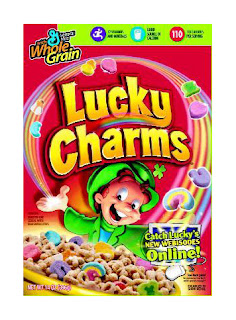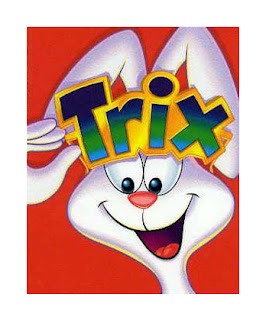Free Download
The Voice of the Underdog®
Chapter 1
 Over the course of the summer, there have been a number of stories popping up about advertising to kids and the changes that are being forced by watchdog groups threatening to sue major corporations who don’t bend to their wishes. If, like me, you are one who fears the slippery slope on subjects like this, be aware—we’re entering double black diamond territory here.
Over the course of the summer, there have been a number of stories popping up about advertising to kids and the changes that are being forced by watchdog groups threatening to sue major corporations who don’t bend to their wishes. If, like me, you are one who fears the slippery slope on subjects like this, be aware—we’re entering double black diamond territory here.
Understandably, childhood obesity is a huge problem in America. But are cereals and breakfast bars really the big culprits here? What about the loss of PE in the schools? What about the proliferation of fast food? What about the lack of parental involvement? I think pinning this on the Lucky Charms leprechaun is BS, as is coercive litigation!
In June, Kellogg’s announced it would put $206 million of its ad budget in limbo and severely limit its advertising to kids younger than 12 as part of a pledge to revamp children’s advertising. For those keeping score at home, that’s Apple Jacks, Cocoa Krispies, Pop-Tarts, Froot Loops, Frosted Flakes, Eggo Waffles, Corn Pops and Frosted Mini-Wheats that you won’t be seeing on Saturday morning.
Kellogg’s move was in part due to an impending lawsuit from the Center for Science in the Public Interest and the Campaign for a Commercial-Free Childhood who had already forced hands at Kraft Foods and Coca-Cola. The groups had also threatened to sue Nickelodeon but later tabled the litigation, reasoning that the Kellogg’s pullback, along with that of the other threatened companies, would be tough enough on the huge kids networks. By mid-July, Pepsi, McDonald’s, Hershey’s, Cadbury Adams, Campbell Soup, General Mills, M&M/Mars, and Unilever had fallen in line with their pledges.
 Forget the fact that in early June, the Archives of Pediatrics & Adolescent Medicine, a publication of the American Medical Association, and the FTC released separate reports that showed nearly identical findings: American children today do not see more food ads on television than their counterparts did 20 years ago. Both reports challenged the notion that childhood obesity is a result of TV marketing and in a Washington Times article, Michael Salinger, FTC director of the bureau of economics, said, “I think childhood obesity is a major problem … But I think the study casts doubt on whether food advertising is the main culprit.”
Forget the fact that in early June, the Archives of Pediatrics & Adolescent Medicine, a publication of the American Medical Association, and the FTC released separate reports that showed nearly identical findings: American children today do not see more food ads on television than their counterparts did 20 years ago. Both reports challenged the notion that childhood obesity is a result of TV marketing and in a Washington Times article, Michael Salinger, FTC director of the bureau of economics, said, “I think childhood obesity is a major problem … But I think the study casts doubt on whether food advertising is the main culprit.”
It seems the Center for Science in the Public Interest and the Campaign for a Commercial-Free Childhood have chosen to ignore the reports. Instead, they’ve resorted to threats, lawsuits and a crusade to remove Snap, Crackle and Pop, Toucan Sam and the Trix Rabbit from the airwaves. And they’re getting their wish.
General Mills’ pledge indicates that in its current form, Trix is no longer for kids.
Turns out, the damn rabbit was right. I hate that.
We challenge underdog brands to think differently. We help them find their voice, and urge them to blaze new trails to make sure they stand out from the pack. Whether you need an agency of record or support on a project, we are here to help you win.